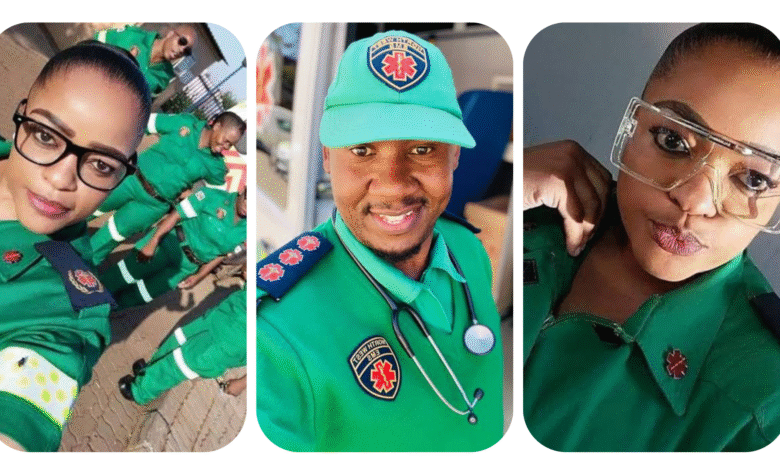Let’s be real—healthcare isn’t exactly getting easier, and if you’ve ever thought about jumping into the chaos (in a good way), Mediclinic’s got your back with their Higher Certificate in Emergency Medical Care/Paramedic . Some people call it the “Higher Certificate in Paramedic,” but honestly, it’s just your first big step into a wild, stressful, weirdly rewarding career.
So, What’s This Certificate All About? Picture this: a one-year, full-throttle, full-time ride at Mediclinic’s top-notch training centres. You’ll get all the basics—like, actually useful stuff, not just textbook theory. They turn you into an Emergency Care Assistant (ECA), which basically means you’re the person people really want to see when things go sideways. Oh, and the whole thing’s legit—HPCSA registered and all that jazz. If you’re thinking long-term, this is the launchpad for eventually becoming one of those Advanced Life Support Paramedics you see in movies (minus the dramatic slow-mo, probably).
Alright, here’s the lowdown—no corporate speak, just the real deal:
Look, everyone’s welcome to throw their hat in the ring, but let’s be honest: if you tick the Employment Equity Plan boxes for Mediclinic Southern Africa or you’re already part of the team and actually meet the basic requirements, you’re getting bumped up the list. That’s just how it goes.
They’d really like to see at least 40 hours of volunteer work in Emergency Medical Services under your belt. Not a must, but hey, brownie points if you’ve got it.
Before you even think about getting in, you’ll need to pass both a medical exam and a fitness test. Don’t sweat it—details are all up on the Mediclinic website if you wanna check what’s coming your way.
If you make the cut, they’ll call you in for an interview and those lovely assessments. Basically, bring your A-game.
Now, maybe you’re thinking, “Wait, I don’t tick every single box.” Don’t panic—if you’ve got some experience in healthcare, you can still try your luck for the Higher Certificate programme through RPL (that’s Recognition of Prior Learning, in case you missed it).
But, there are still some hoops to jump through for RPL:
- You’ve gotta have Matric (grade 12) with the right scores, or the old school senior certificate with at least 950 marks and all the must-have subjects.
- Age? 25 or older, please.
- Officially registered as a Basic Ambulance Assistant (BAA) or Ambulance Emergency Assistant (AEA) with the HPCSA.
- Five years’ hands-on experience actually doing the job, not just talking about it.
- Still working in Emergency Medical Services right now.
- And yeah, you’ll need to pass both theory and clinical assessments to get in.
So, if you’re keen and you reckon you’ve got what it takes, go for it. Worst case, you get some interview practice. Best case? You’re in.
Applications process:
Visit Mediclinic website at: www.mediclinic.co.za
The following will be required as soon as the application system opens:
– Concise CV
– Certified copy of grade 12 certificate or grade 11 academic results
– Certified copy of the front page of the applicant’s ID book
– Proof of payment of the non-refundable application fee
Rules and Requirements
• Students must have an average mark of 50% for each subject to gain entrance to the final examination.
• Competency must be achieved in all formative and summative practical, fitness, and clinical assessments.
• A final mark of 50% per module/subject is required to pass each year.
• Students will need to fulfil all requirements to complete each study year and obtain the final qualification.
• A supplementary theoretical and clinical examination will be granted (provided the student meets the criteria).
• Students may maintain credit for certain theoretical modules should they fail a year. It is important to note that the Emergency Medical Care modules are co-requisites for progression to the next year of study and therefore should the student fail one of these modules they will be required to repeat all three. In the case where a student fails a non-clinical module, the student will be required to maintain clinical proficiency through the completion of clinical practice shifts each month.
• Mediclinic (Pty) Ltd will place students for the clinical component of the programme.
• Students may not work permanent night duty during the programme.
• Twelve (12) days of sick leave will be granted per year (upon receipt of a valid medical certificate).
• Leave will be granted according to the academic programme.
• Clinical accompaniment is provided by
REQUIRED EDUCATION
Please visit the link below to download the programme prospectus containing the minimum educational requirements and additional important information before you apply.
Why Mediclinic, Though? Here’s the thing: people talk a lot about “standards,” but Mediclinic actually means it. Their instructors? Battle-tested. The simulation labs? Fancy. You’re not just reading about emergencies—you’re in the thick of it, for real. Once you’ve got this certificate, you can score work as an ECA in government or private gigs, and, if you’re bitten by the bug, you can keep climbing—Diploma, Degree, whatever.
Bottom line: if you want to kickstart a career where “boring” isn’t in the dictionary, Mediclinic’s Higher Certificate is a pretty solid bet. Just be ready for some adrenaline and late-night coffee.
